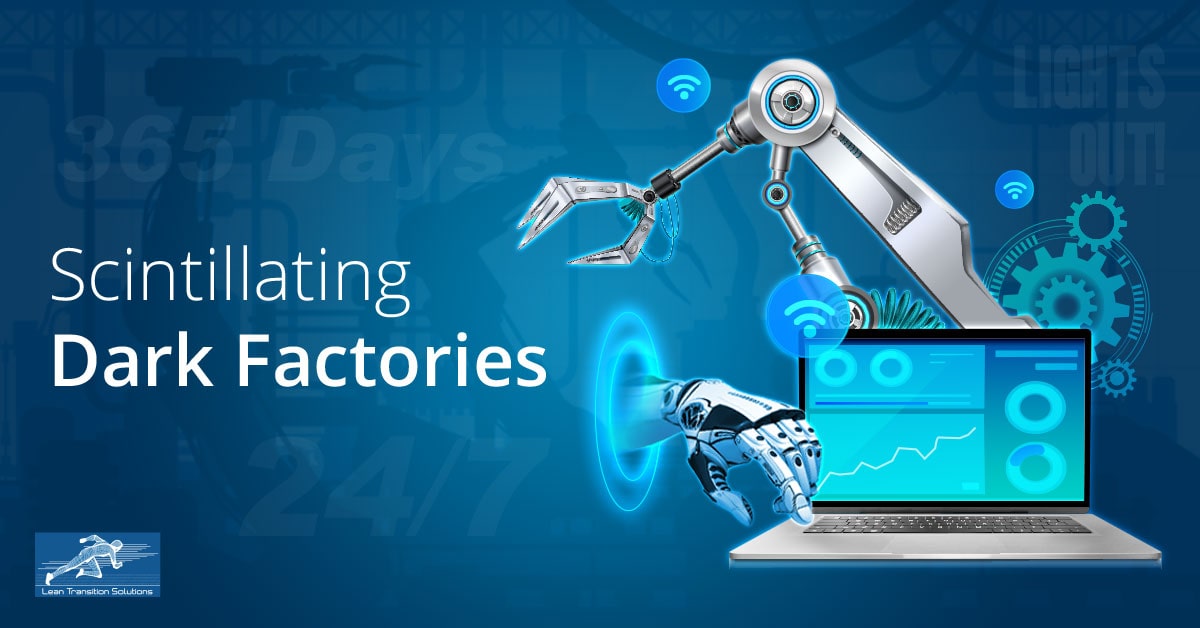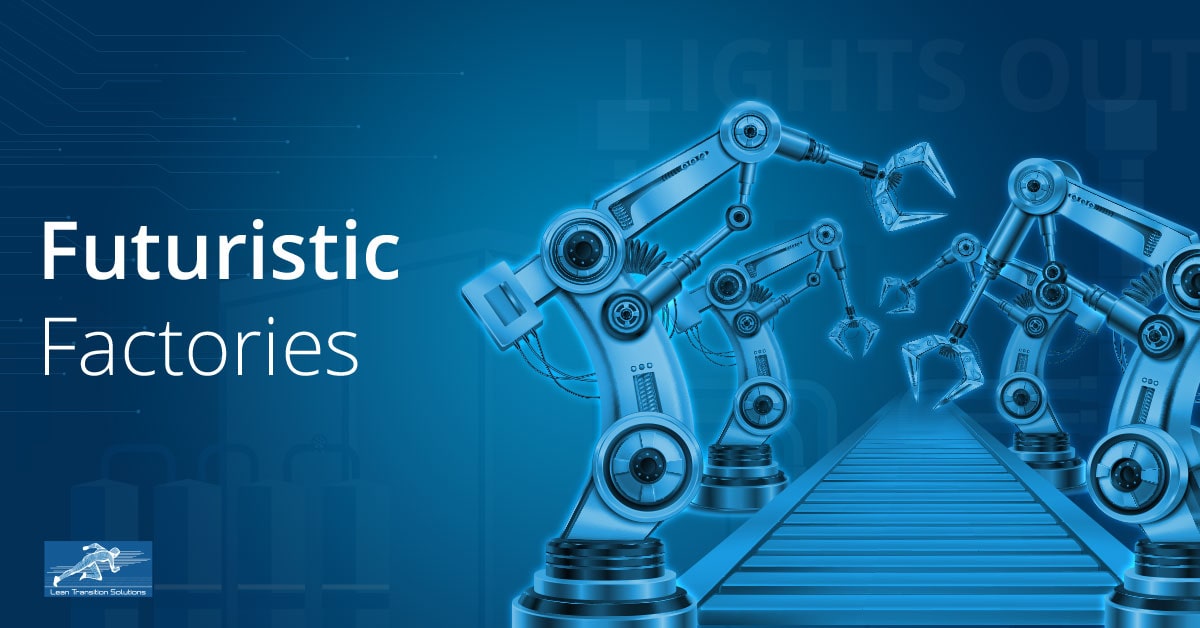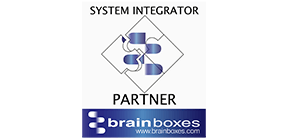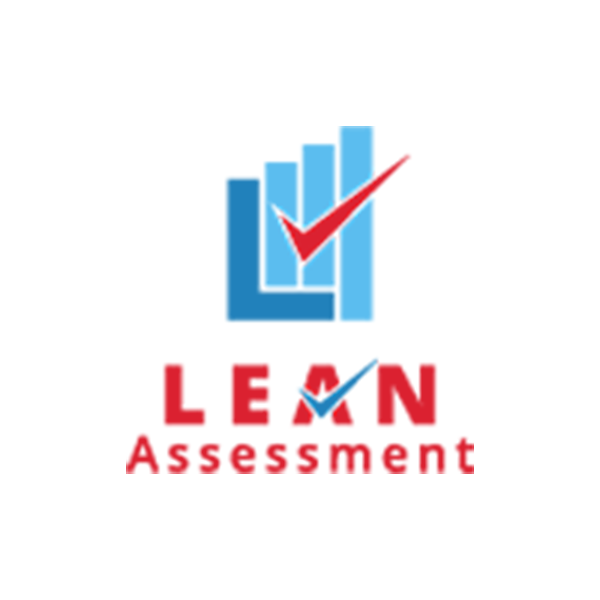Scintillating Dark Factories
- By Brett Griffiths
- Lean Technology
- July 29 , 2020
- Share

With the technological advancements made in the past centuries, we understand human desire to make life much easier and smoother. Industrial revolutions have played an inevitable role in shaping the mindset of people all around the globe. The evolution of industrial revolutions has brought us to the fourth industrial revolution that is Industry 4.0.
The question to be asked is how Industry 4.0 differs from the other revolutions that took place before. Well the answer is quite simple, Industry 4.0 is all about implementing automated manufacturing processes to increase productivity without any compromise in the quality and quantity with zero wastage. Combining Lean principles with automation in industries is what the fourth industrial revolution aims at, by producing Smart factories, the future of manufacturing industry. It will enable us to live in a virtual world with automated machineries.
Smart Factory is about taking a step forward from traditional systems to an automated flexible system. Manufacturers across the world have initiated smart manufacturing systems. With Industry 4.0 ‘Smart Factory’ is not a fantasy but a reality which can bring in a more effective and agile system, less production downtime, transparency and can help place themselves better in the competitive marketplace. The idea of adopting and implementing smart factory solutions can be challenging, but with customised software solutions and proper planning to implement it at the ground level, can elevate the graph of operational excellence.
Dark Factories are the reality that is approaching soon. The term has been attracting a lot of people. What are Dark Factories? How does it add to the current scenario of smart factories? Dark factories are the futuristic factories where machines will be fully automated and can function without human power or with less human power when compared to the current smart factories. Dark factories (where the lights are off) can work 24*7 with automated robots, which will increase the productivity with zero error in manufacturing processes. They can eliminate almost 90% of the human workforce without compromising the production routine.

Adapting to dark factories cannot be seen as a drastic change, as over a period of time people have seen the advancements made in the fields of technology and are getting used to it. Factories are already moving towards an automated industry and moreover it has become a necessary for industries to be more advanced and updated. Upgrading from smart factory to dark factory can be more of an economic decision.
During the time of pandemic industries with advanced machineries had a higher chance of continuing their manufacturing processes. The pandemic has made us realise that we need to have more sophisticated and automated systems for the industries to run smoothly, and surely it leads us to the implementation of Dark factories. With fully automated factories we will never have to worry or wait to begin the front-line production. It can be turned into a continuous process. Incorporating lights off methodologies into floor plan saves cost, space and time. Research reveals that a fully automated factory can increase productivity even up to 250% and the errors decreased by 80%. No doubt within a time span of five to ten years industries across the world will embrace the change of becoming smart factories and those who already run a smart factory will definitely transform to fully automated ‘Dark Factories’.
The reign of Dark Factories is near and soon the world will see the transformation to Dark factories. No doubt Dark Factories will definitely pave the way to a brighter future.
Start Free Trial
LEAN TRANSITION SOLUTIONS
The Old Vicarage, Pershore Road, Upton Snodsbury, Worcester, Worcestershire, WR7 4NR, United Kingdom.
Lean Transition Solution
-
Lean Industry 4.0 Solutions
- TITAN:Computerised Maintenance Management System
- Data Point:Computerised Balanced Scorecard
- Janus: Automated Shop-floor Data Capture System
- T-Card: Integrated Production Planning and Plant Level Execution System
- JDI: Maintenance Automation App
- Maximus: Integrated ERP System
- e-Contractor: Integrated In-house Contractor Management System
- Q-Point: Integrated Quality Management System
- Safety-Point: Integrated Health and Safety Management System
- Lean Assessment: Lean Audit and Assessment System
- Saisho: Lean 5S Audit and Assessment App
- Emergency Response App: To Manage Emergency Situations
-
Leadership 4.0 Solutions
- Your Career Academy(YCA): Learning and Development System
- YCA e-Learning : Management System
- MentorYou(MU): Mentoring App
- Leadership 4.0 : Leadership Transformation Program
- Lean Manufacturing Workshop
- Lean Manufacturing Consulting
- ILM Accredited Green Belt Training and Certification Program
- ILM Accredited Black Belt Training and Certification Program
- Software Development Service
- Resources
- Company
- Contact











